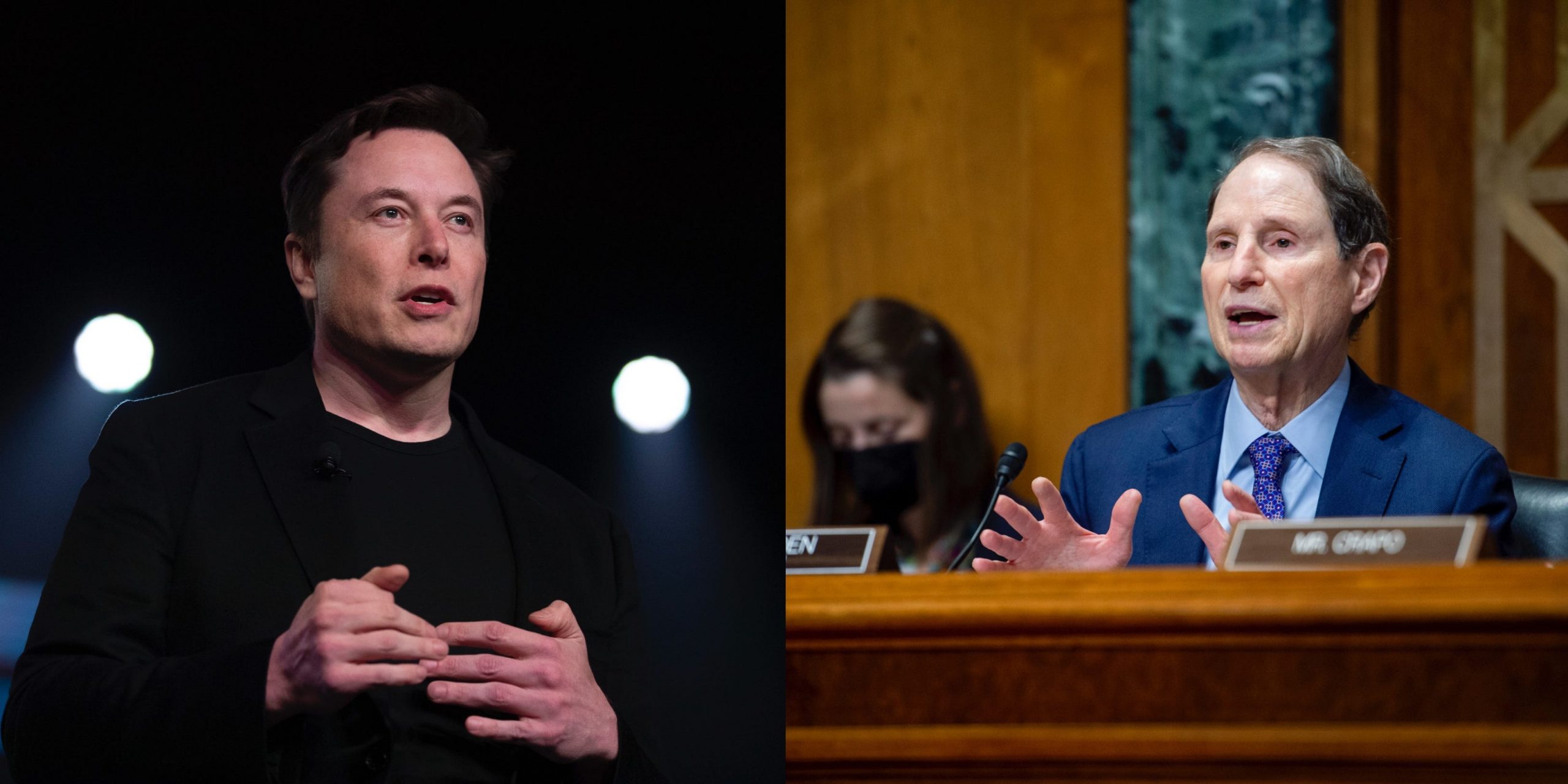
Jae C. Hong/AP Photo; Rod Lamkey/AP Photo
- Elon Musk may sell 10% of his stake in Tesla after a bizarre Twitter poll. The tax bill could reach nearly $4 billion.
- That's just 10% of what Musk would owe if Sen. Ron Wyden's "billionaires' tax" proposal became reality.
- Musk asked Twitter about the stake sale in response to Wyden's proposal, but Insider calculates there's no real comparison.
Elon Musk has been mad recently about a tax that doesn't exist yet – and may never.
It's Sen. Ron Wyden's so-called billionaires' tax, which would tax unrealized capital gains on assets including stock. Musk has repeatedly slammed the proposal, and his 17% stake in Tesla has made him the world's richest man, as its value has skyrocketed during the pandemic.
This weekend, Musk polled Twitter about whether he should sell some of this stake, hinting at Wyden's proposal in particular. But the math shows that even if Musk does sell 10% of his holdings, it wouldn't be close to the same tax bill as under Wyden's proposal.
As of an August company disclosure, Musk owns about 170 million shares of Tesla stock. At the automaker's stock price of around $1,165 per share mid-Monday morning, 10% of Musk's stake would be worth just shy of $20 billion. Assuming a 20% long-term capital gains rate, the sale could mean Musk would need to pay up to $4 billion in capital-gains taxes (the bill would likely be less than this since gains are defined as the increase in value from purchase to sale and we're ignoring the purchase price; this is just an upper estimate.)
Yet that's just a fraction of what the CEO would pay under Wyden's "billionaires' tax."
Tesla's surging stock price has lifted Musk's net worth by roughly $168 billion in 2021, according to the Bloomberg Billionaires Index. Wyden's law would treat that increase the same way as income from a stock sale, taxed at a 23.8% rate. If the "billionaires' tax" was already law, and Musk's net worth stayed the same through the end of the year, the Tesla CEO would owe the government about $40 billion.
Musk's potential shares sale is also less newsworthy than it first appears. The CEO will already face a "big tax bill" in the next year or two, since he has 23 million shares in stock options that expire in August 2022, Wedbush analyst Dan Ives said Monday. Selling 10% of his stake is more than the 6% sale already anticipated by investors, but "ultimately it's a digestible number," Ives added.
Musk's payment would likely be the largest under the "billionaires' tax," given his status as the world's richest person, but the proposal would rake in far more than that. Wyden's plan would raise $557 billion over the next 10 years, according to early estimates from the Joint Committee on Taxation published Friday. That would cover all of the new spending in the bipartisan infrastructure bill approved on Friday, or nearly one-third of Democrats' social spending plan.
To be sure, Democrats face several obstacles on the way to approving the "billionaires' tax." Sen. Joe Manchin pushed back against the proposal in late October, saying he didn't like "the connotation that we're targeting different people."
While the centrist Senate Democrat didn't outright oppose Wyden's plan, his stance could doom the tax. Democrats hold just 50 seats in the Senate, meaning they need unanimous support to pass President Joe Biden's Build Back Better spending plan. And while the House version of the spending package hasn't yet been finalized, House Ways and Means Committee Chairman Richard Neal has said it's "very unlikely" the tax proposal will be included.
For now, Musk probably won't lose any sleep over a potential $40 billion tax bill. A $4 billion bill for his upcoming stock sale will hit his net worth, but he'd still be the world's richest man - by more than $130 billion.
